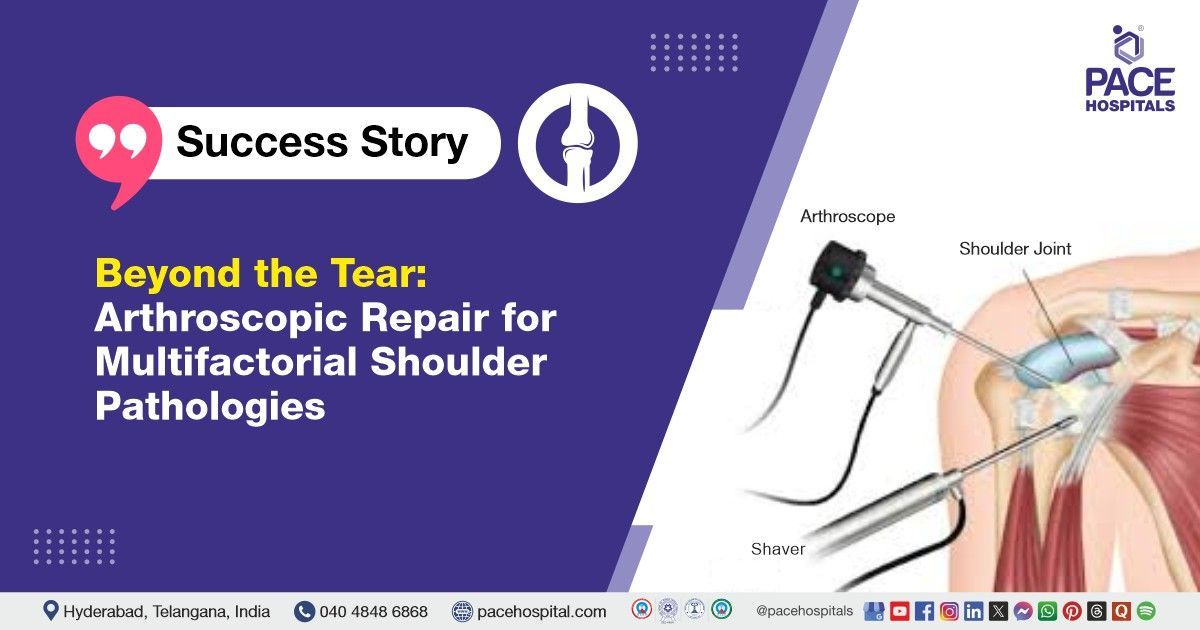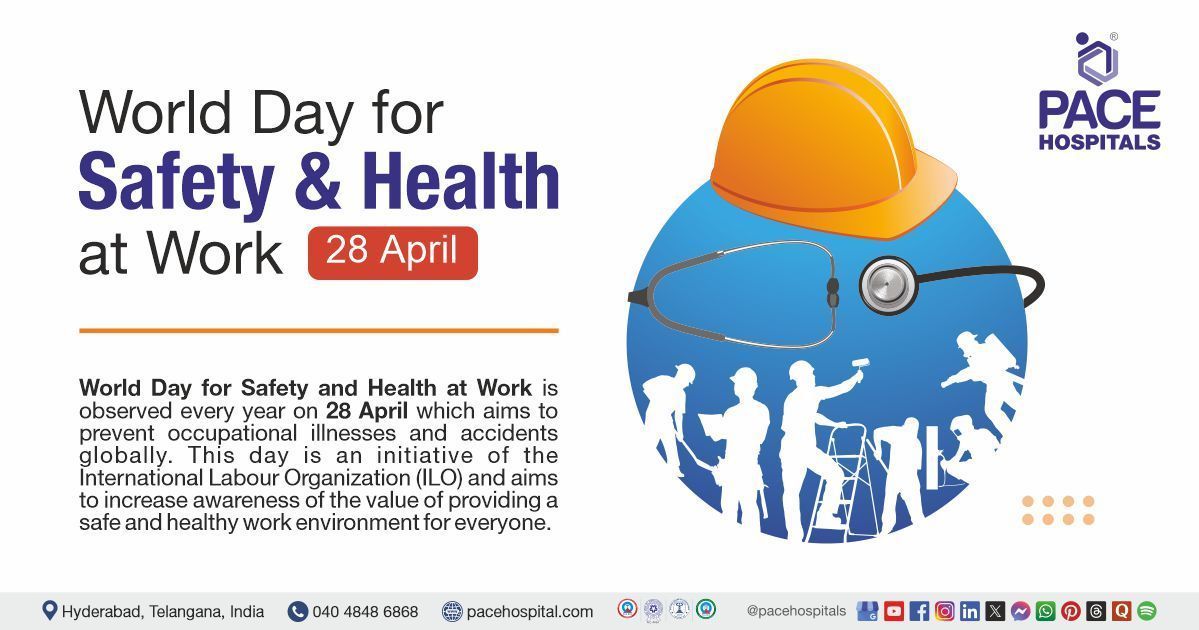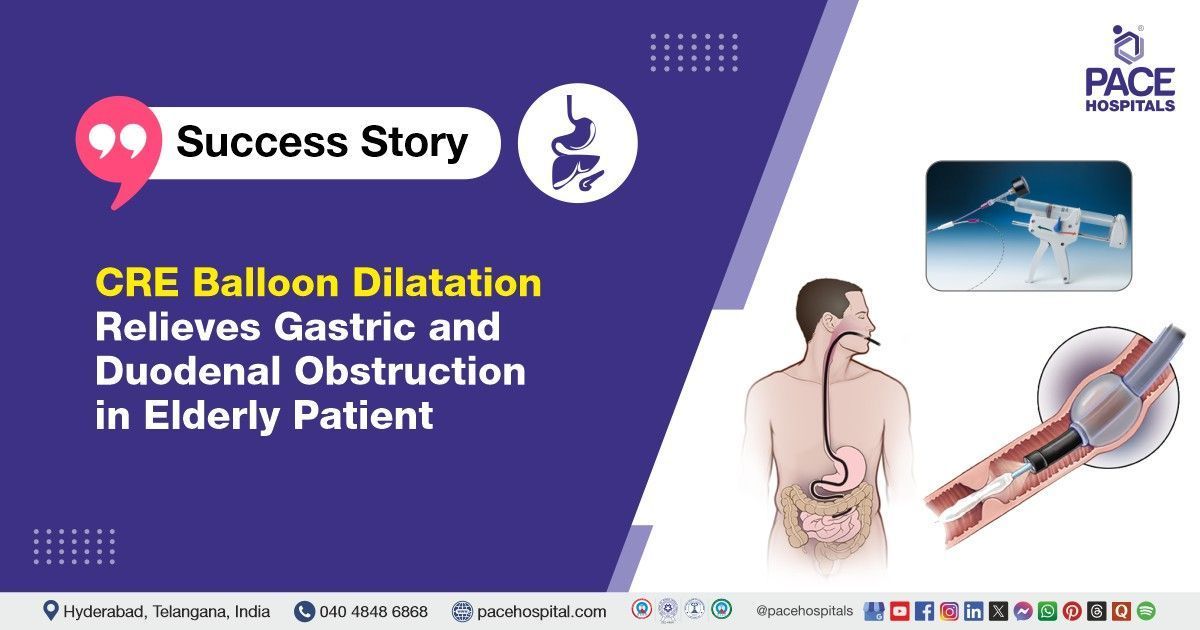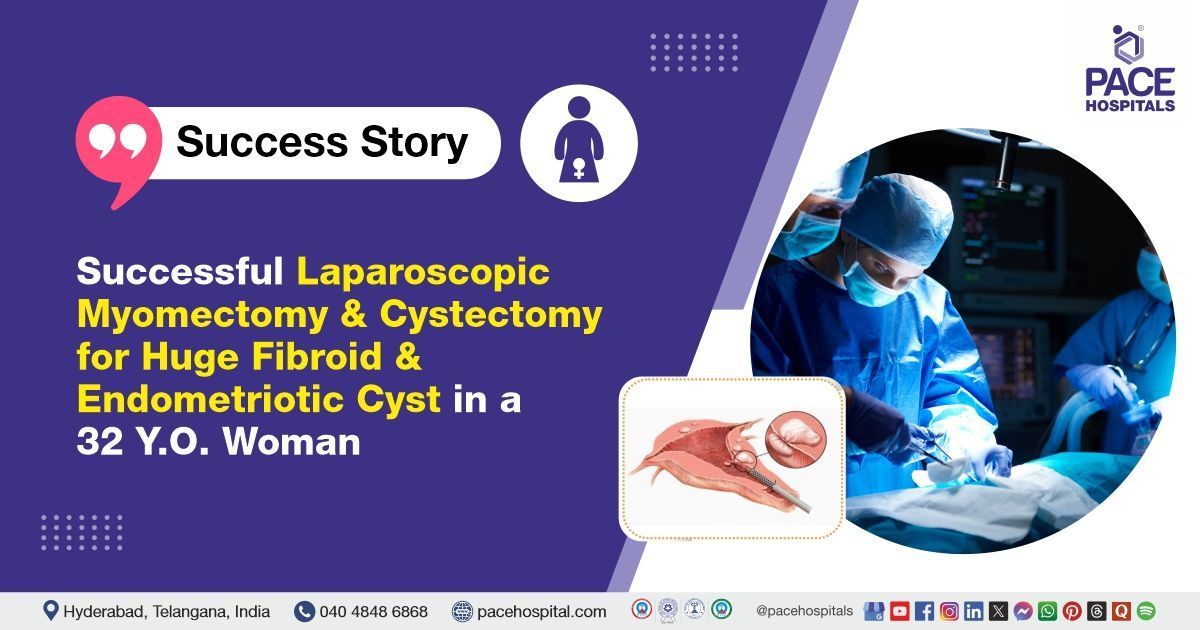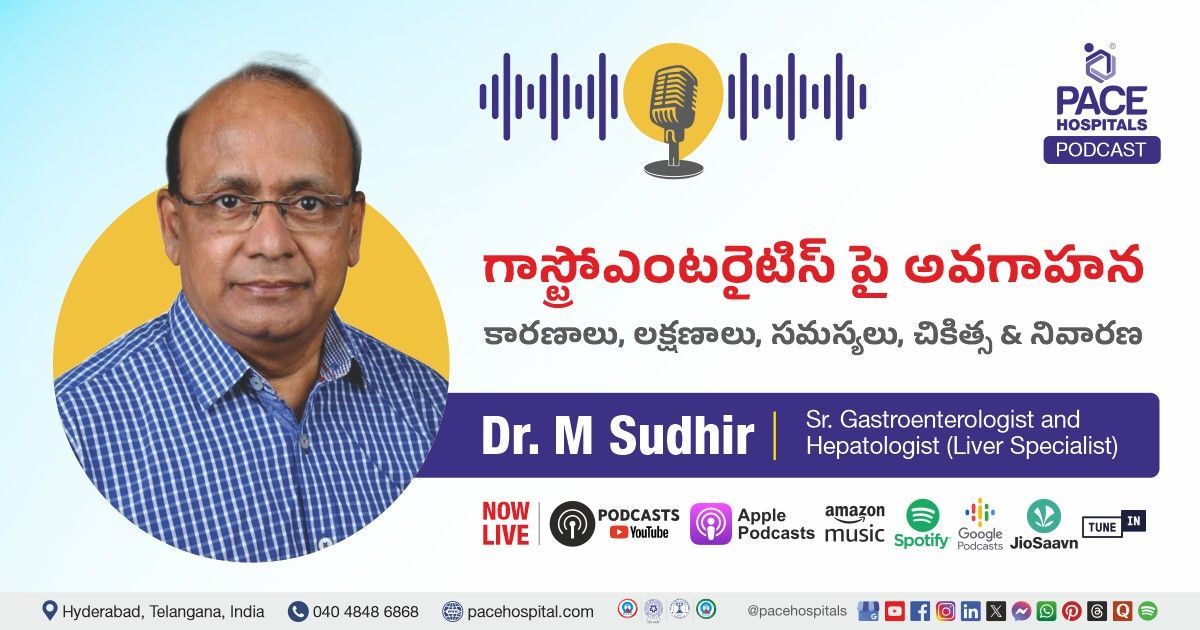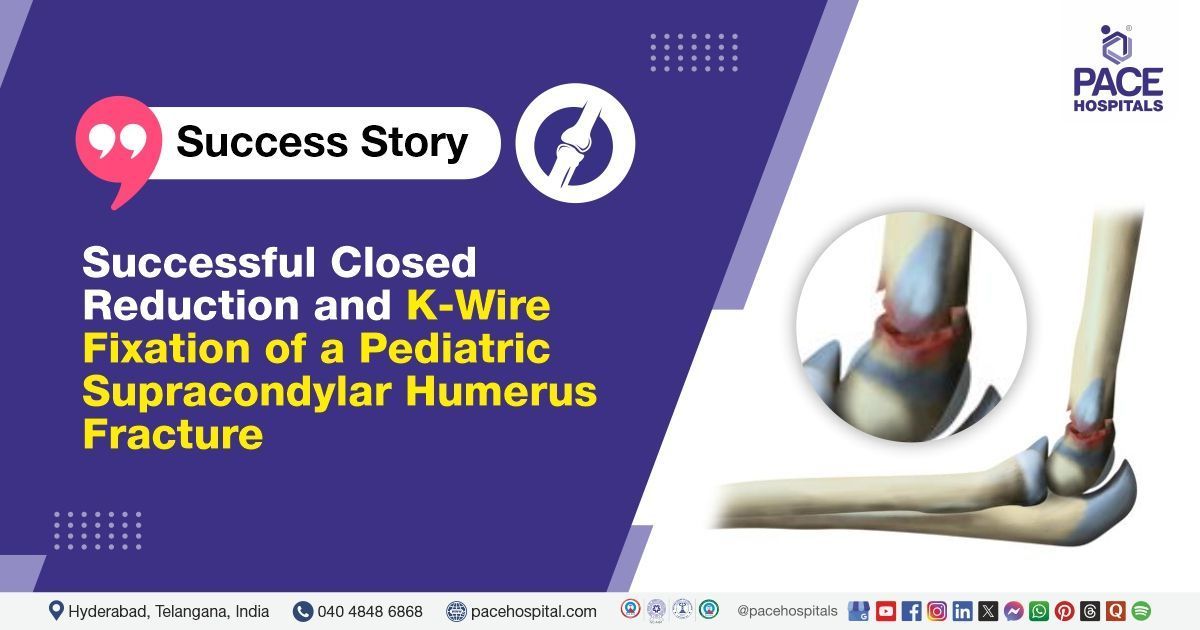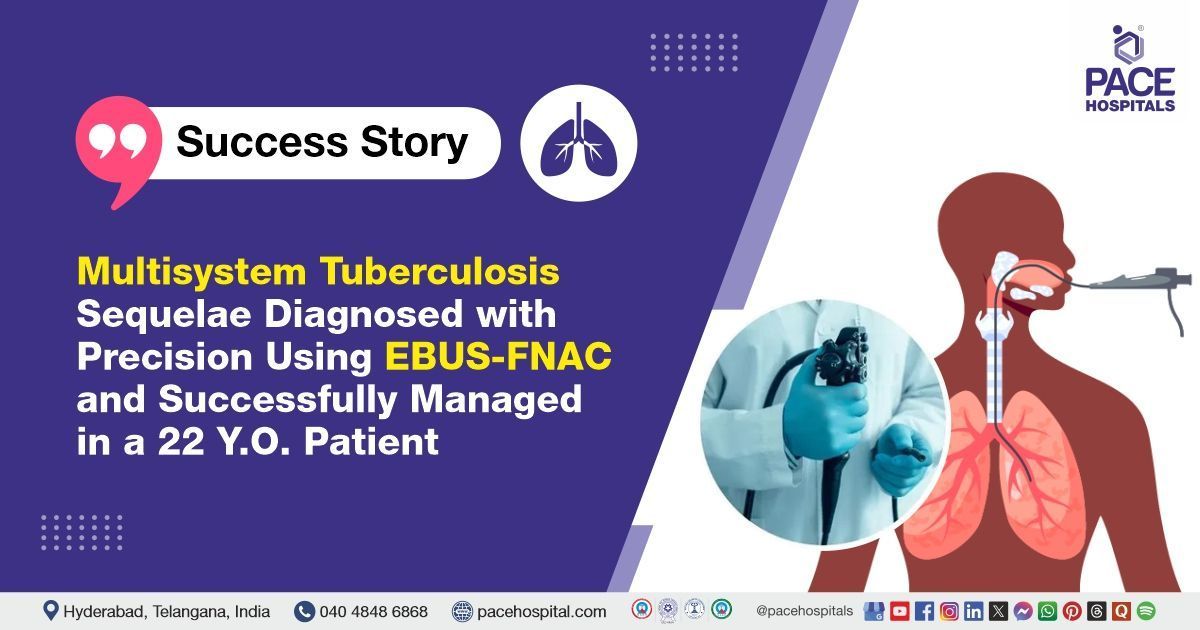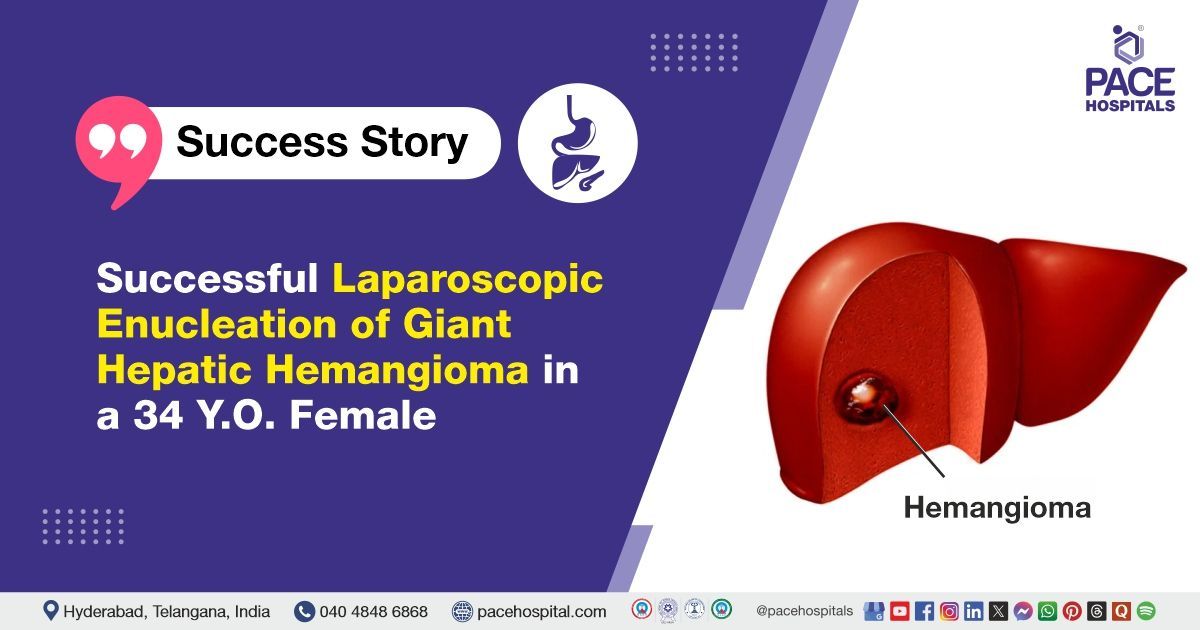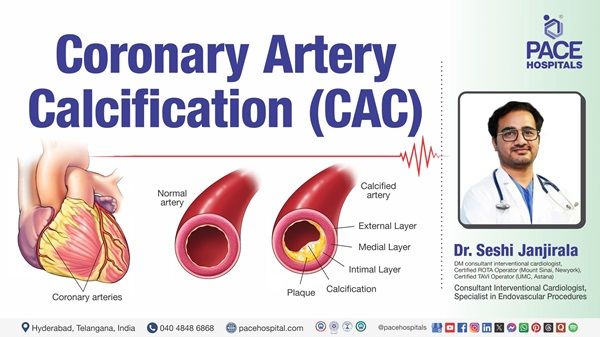Beyond the Tear: Arthroscopic Repair for Multifactorial Shoulder Pathologies
The orthopedic team at PACE Hospitals, Hyderabad, successfully performed arthroscopy procedures for rotator cuff damage, biceps tendonitis, and frozen shoulder for a 66-year-old male patient. This comprehensive surgical intervention effectively restored the patient's mobility and functional capacity, enabling him to resume daily activities.
Chief Complaints
The patient, a 66-year-old male, presented to the Orthopedics Department of
PACE Hospitals, Hitech City, Hyderabad, with persistent right shoulder pain that significantly impaired his ability to perform overhead activities. His symptoms included severe discomfort and a markedly reduced range of motion, which progressively worsened and began interfering with routine tasks.
Medical History
Upon comprehensive evaluation, it was understood that the patient's condition developed following a history of heavy weight lifting, which precipitated the onset of his symptoms. Over time, he experienced increasing pain and stiffness that substantially limited his functional capacity.
His medical history indicated well-controlled
hypertension (increased blood pressure) managed through regular medication, with no other significant comorbidities noted.
On examination
Clinical evaluation of the right shoulder revealed a positive Jobe's test, confirming supraspinatus tendon involvement. The examination demonstrated a significantly reduced range of motion secondary to pain, with particular limitation in internal rotation and abduction beyond 30 degrees. Notably, there were no clinical signs of distal neurovascular deficit observed during the assessment.
Diagnosis
Through comprehensive clinical evaluation and diagnostic arthroscopic imaging, the patient was diagnosed with a complete rotator cuff tear in the right shoulder, degenerative biceps tendonitis, and adhesive capsulitis (commonly known as frozen shoulder). These conditions collectively contributed to his persistent symptoms and functional limitations.
Medical Decision Making
Considering the patient's chronic pain, substantial functional impairment, and confirmed structural damage, The orthopedic team determined that operative intervention would provide the optimal outcome.
After thorough discussions with the patient and his family regarding treatment options, Dr. Raghuram, the Orthopaedic Consultant, Shoulder and Knee Arthroscopic Surgeon, recommended a multi-component arthroscopic procedure. This approach included diagnostic arthroscopy to fully assess joint pathology, followed by arthroscopic rotator cuff repair, Arthroscopic biceps tenodesis to address the degenerative tendon changes, and Arthroscopic shoulder capsulotomy to relieve the capsular contracture characteristic of frozen shoulder.
Surgical Procedure
The patient underwent right shoulder arthroscopy under general anesthesia, which allowed for both comprehensive diagnostic evaluation and therapeutic intervention. The diagnostic phase confirmed the presence of a rotator cuff tear in his right shoulder, degenerative biceps tendonitis, and a significant capsular contracture.
The surgical team then proceeded with arthroscopic rotator cuff repair, meticulously reattaching the torn tendons using advanced techniques. Concurrently, they performed an Arthroscopic biceps tenodesis to properly anchor the damaged tendon to the humerus, followed by Arthroscopic capsulotomy to release the constricted shoulder capsule. The procedure concluded successfully with minimal blood loss and no intraoperative complications, achieving excellent joint stability.
Postoperative Care
Following surgery, the patient's recovery protocol included immobilization with an arm sling for proper tissue healing. The nursing team maintained strict wound care protocols, with regular dressing changes that showed no signs of infection. His medication regimen included antibiotics, analgesics, and proton pump inhibitors to manage pain and prevent complications. Early physical therapy, focusing initially on elbow range of motion exercises, was initiated promptly to prevent stiffness and promote recovery.
Dietary Advice
During discharge, the patient was permitted to maintain his normal dietary habits.
Discharge Medications
Upon discharge, the patient was prescribed a course of antibiotic twice daily for five days to prevent infection, an analgesic twice daily for one week for pain management, a proton pump inhibitor once daily before breakfast for gastric protection, and a nutritional supplement once daily after meals to support healing.
Advice on Discharge
The patient was instructed to continue using his arm sling as directed and adhere strictly to his prescribed physical therapy regimen to ensure optimal recovery of shoulder mobility.
The discharge instructions emphasized that the patient should seek immediate medical attention if he developed a fever, unusual swelling, or abnormal discharge from the surgical site.
Follow-Up
The patient was instructed to return for a follow-up after 3 days with Dr. Sista Raghuram in the OPD, with prior appointment scheduling.
The Role of Arthroscopy in Rotator Cuff Repair
Arthroscopic shoulder surgery represents a significant advancement in orthopedic care, offering a minimally invasive approach to complex shoulder pathologies. This technique provides surgeons with direct visualization of intra-articular structures while enabling comprehensive treatment through tiny incisions.
The benefits of this approach are many: it allows for precise diagnosis and simultaneous treatment of multiple pathologies, reduces postoperative pain, minimizes surgical trauma to surrounding tissues, and facilitates faster recovery compared to traditional open procedures. At PACE Hospitals, the specialized expertise in advanced arthroscopic techniques ensures optimal outcomes for patients with complex shoulder disorders, consistently delivering restored function and improved quality of life.
Share on
Request an appointment
Fill in the appointment form or call us instantly to book a confirmed appointment with our super specialist at 04048486868

